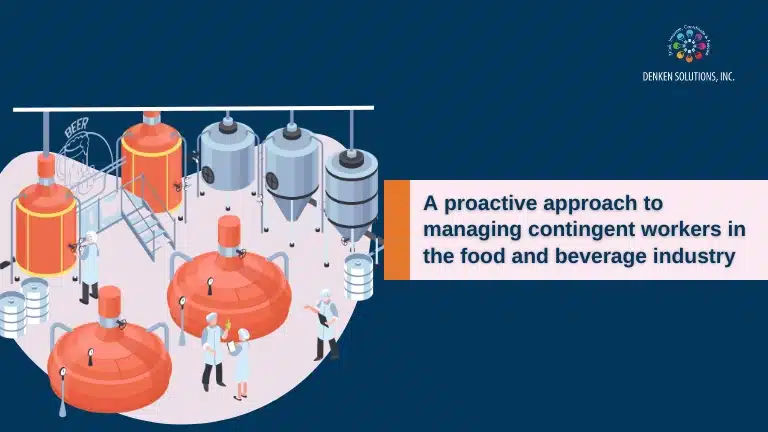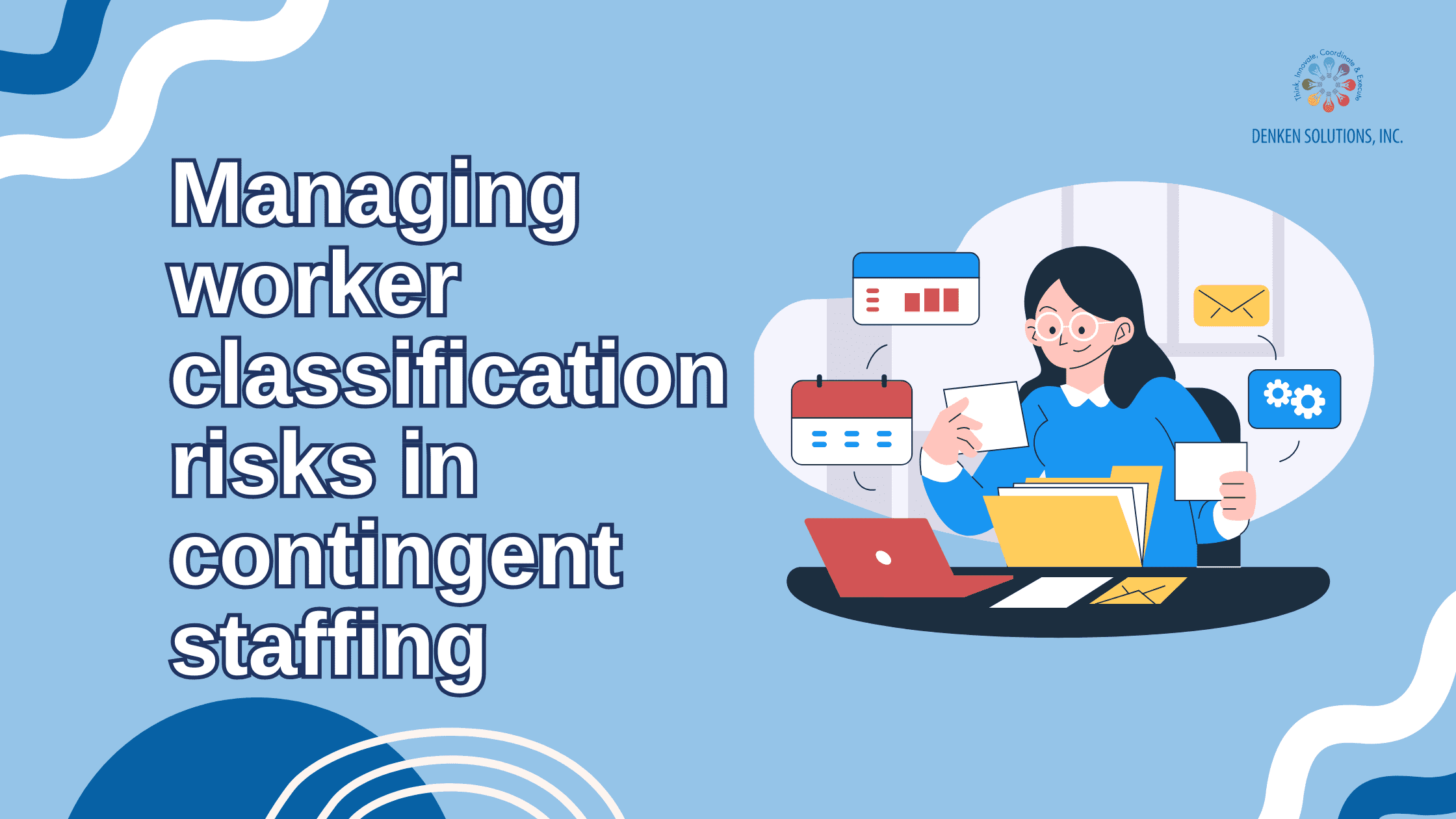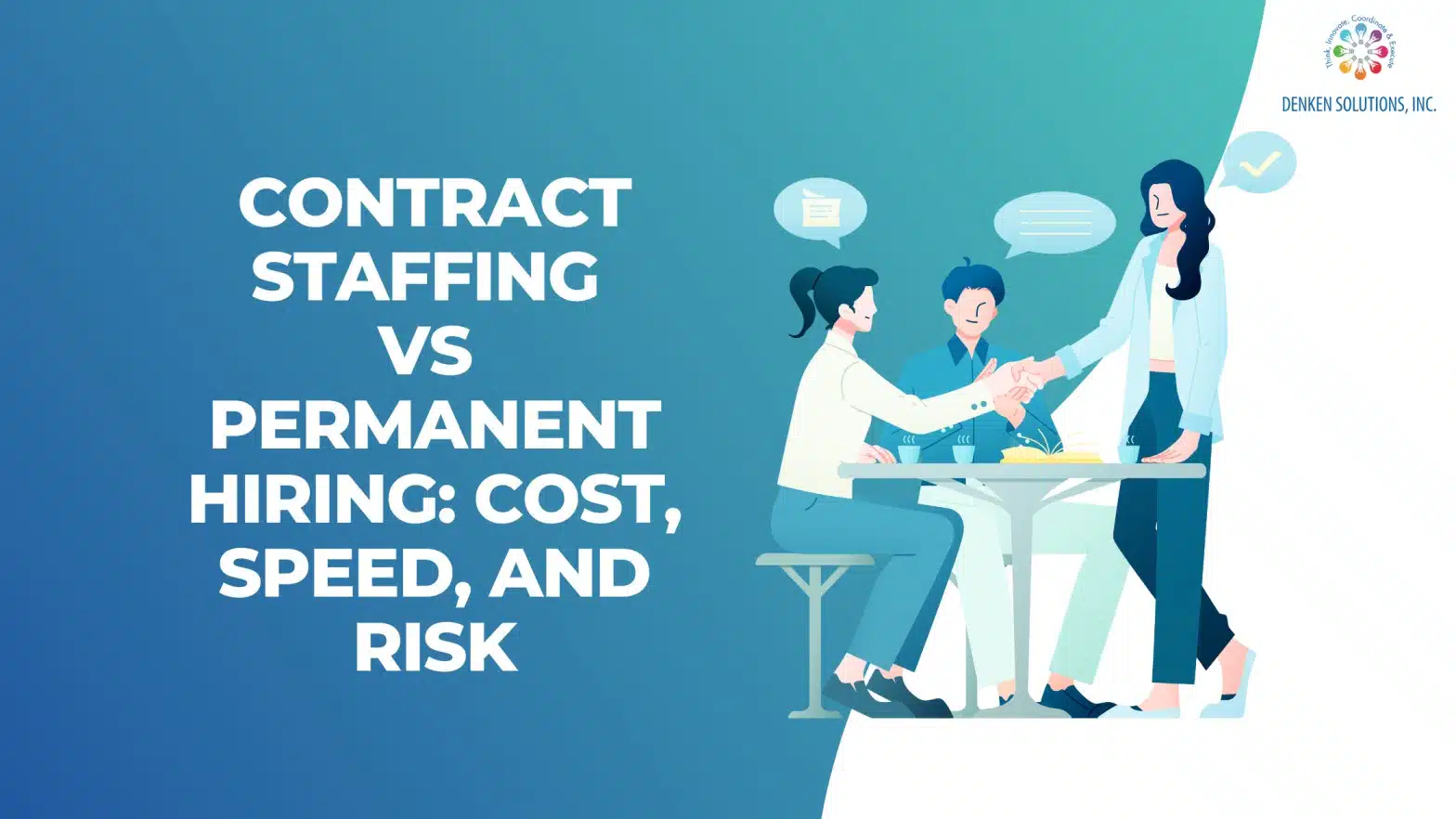Overview
Contingent workers appear to be undergoing a global revolutionary adoption in almost every industry, including food and beverage. This shift in the workforce model has been driven by the dynamic business market landscape ever since the breakout of the COVID-19 pandemic. A contingent workforce can be defined as a labor pool comprising independent contractors, freelancers, or temporary staff. Though companies do not directly employ contingent workers in the food and beverage industry, they can be efficiently utilized in businesses to fill positions requiring specialized skills and competencies.This article demonstrates the conditions in which a food and beverage company should consider building a contingent workforce and the approach that must be taken for managing contingent workers in the food and beverage industry.
When should employers consider engaging contingent workers in the food and beverage industry?
Recognizing the perfect time and identifying the need to undertake a contingent staffing approach is crucial in the food and beverage industry. The food and beverage sector is often found to encounter challenges due to a shortage of staff and fluctuations in demand. As such, it is important for employers to engage temporary workers in food industry to amplify its efficacy and stay competitive under every market condition.
Let’s identify the key signs when you should consider developing a contingent workforce strategy for food and beverage staffing.
- You need to scale your food and beverage company as it is witnessing significant growth. With a contingent workforce, you can seamlessly scale your food and beverage business while remaining flexible and efficiently managing change or innovation.
- You have initiated a new project which demands specialized skills: When your business or project demands specific skills and competencies that might be absent in your existing workforce, you can suit the needs by employing contingent workers.
- Your business demands new roles and workers to fulfill seasonal peaks: The demand in the food and beverage industry fluctuates with varying seasons. During seasonal peaks, you can opt for contingent staffing without committing to full-time employment so that you can release the workers once the demands are met.
- You want to cut off overhead costs related to full-time employment: Full-time employees not only require fixed or long-term salaries but also look for certain perks and benefits while choosing employment. A contingent workforce can deliver the same performance and output as fixed employees without the extra costs.
- Your business aspires to stay competitive and agile in the ever-changing market conditions: Just like other industries, the food and beverage sector remains vulnerable to economic downturns and technological advancements. In the changing and evolving market conditions, contingent workers help food and beverage businesses to gain a competitive edge.
Also read: Utilizing the benefits of contingent staffing to maximize business potential
The proactive approach that you need to take for managing a contingent workforce in the food and beverage industry
- Pre-screen your staffing partner
Before choosing a staffing agency, make sure to conduct thorough background checks. You need to get an understanding of its clients, try to know how long it has been in the food and beverage staffing industry, evaluate its efficiency in delivering good output, and check the feedback and reviews given by clients and job seekers on various social media channels and other platforms, etc.
- Keep an eye on the changing employment laws and regulations
As an employer, you should ensure to keep yourself informed and consistent with applicable employment laws and regulations. This will assist you in reviewing and updating your policies associated with temporary workers in food industry and staying compliant with existing employment laws and regulations.
- Follow a well-defined and structured hiring process
With a standardized hiring process in place, you can undergo a precise vetting process, considering the past work experience of potential candidates, their skills and competencies, education qualifications, etc. An expert staffing agency not only helps standardize your hiring process but also takes care of compliance and risk management pertaining to contingent workers in the food and beverage industry. From screening to onboarding, the entire hiring process becomes efficient in saving time and costs when you partner with a reputable staffing agency.
- Utilize KPIs to monitor and evaluate performance
Due to the temporary nature of their jobs, many organizations do not bother to follow proper strategies or utilize performance metrics to track and evaluate the performance of contingent workers. It is of utmost importance that you utilize Key Performance Indicators (KPIs) and quantify the efficiency, quality, timeliness, and other critical performance aspects of contingent workers. This will help you to compare the performance of your contingent workers with full-time staff and determine if you would employ the same contingent workers in future or refrain from implementing a contingent workforce program.
- Be open to communication and collaboration
Food and beverage employers need to encourage open and transparent communication to ensure the seamless integration of contingent workers with full-time staff. Besides demonstrating them the job requirements and responsibilities in clear terms, you need to foster open and direct communication channels between your contingent and full-time teams. This will help to promote collaboration within teams and ensure that all your workers are on the same page, thereby creating a positive work environment.
- Provide competitive compensation and benefits
As mentioned before, the food and beverage sector is always marked by a shortage of skilled labor due to the changing economic conditions and vulnerabilities of the business market. As such, if you do not offer competitive salaries and attractive benefits to contingent workers, it might be difficult for you to attract and retain top talents. This will further hinder you from achieving high operational standards and quality in your food and beverage business.
Conclusion
Contingent workers have become a crucial part of food and beverage businesses at present. With a contingent workforce program, organizations can easily undertake new projects, efficiently scale business operations, and eliminate overhead costs related to full-time employment. To reap the benefits of contingent workers in the food and beverage industry, it is necessary for organizations to follow a proactive approach. They need to pre-screen their staffing partner, remain updated about employment laws and regulations, initiate a standardized hiring process, evaluate contingent workers’ performance using KPIs, follow open and direct communication within teams, and offer competitive salaries and benefits.
Are you looking to implement contingent workforce programs in your food and beverage business? Denken Solutions is the right platform to seek help. Let’s join forces and drive a strategic workforce plan for your business!



